Today, Dell Technologies is announcing significant updates to Dell EMC PowerStore, its flagship storage offering. This new software and automation capabilities include a performance boost for all models, NVMe-FC upgrades, AppsON scale-out, intelligent deduplication, SCM metadata tiering, and DRE dual parity. Dell is also introducing the PowerStore 500, a lower-cost model suitable for a broader range of businesses and use cases with enterprise performance and features.
Read More – Day 0 With Dell EMC PowerStore | How it Works: Dell EMC PowerStore Cluster
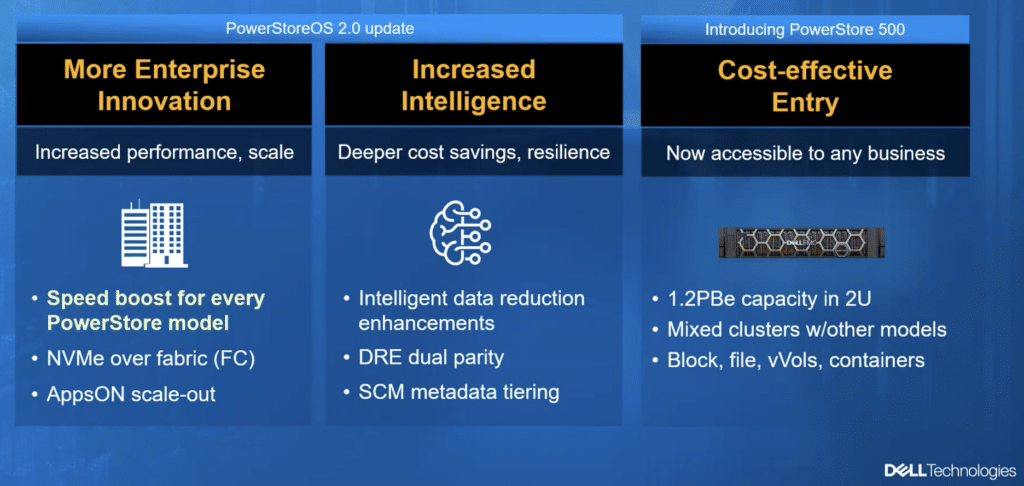
The company acknowledges PowerStore as the fastest-growing new architecture in Dell Technologies’ history. Nearly twenty percent of PowerStore buyers are new to Dell Technologies storage. PowerStore is designed to deliver enhanced resource utilization and performance that keeps pace with application and system growth based on a scale-out architecture and hardware-accelerated advanced data reduction. Using proven capabilities of VMware ESXi, PowerStore X models with AppsON, the platform provides the unique ability to host data-intensive and storage applications directly on the PowerStore system with a storage-based virtualization environment.
With this announcement, Dell highlights two significant updates for the PowerStore platform. The first is the new software release, tilted towards enterprise performance and increased intelligence, for all the different models within the PowerStore family. Here, one more time, Dell focuses on the non-disruptive nature of upgrades and how their customers can take advantage of all new features and functions at no cost. A second update is the new low-cost entry model storage appliance PowerStore 500.
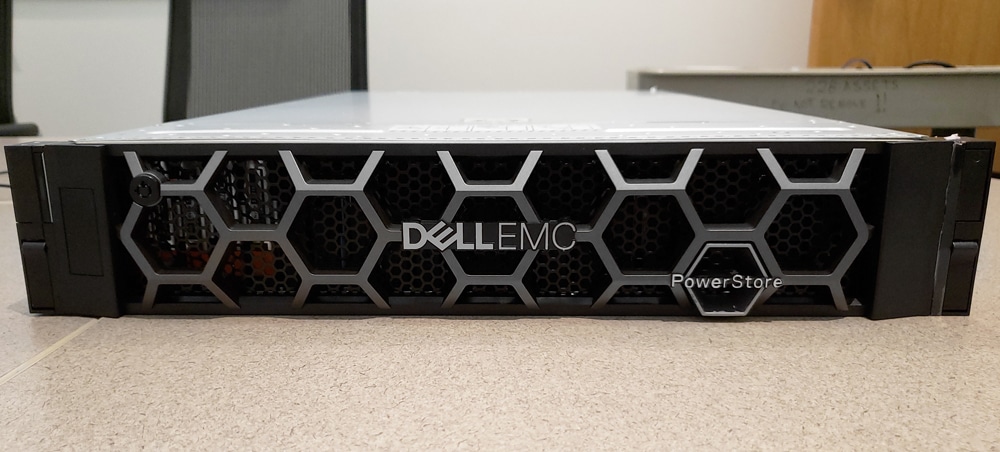
PowerStore Software Innovation
Non-disruptive enhancements to PowerStoreOS 2.0 include delivering up to 25% workload performance improvements, the addition of NVMe over Fibre Channel (NVMe-FC) support, and new scale-out and appliance clustering capabilities added to PowerStore’s industry-first AppsON feature.
Performance improvements: PowerStore supports a wide range of workloads with its scale-up, scale-out architecture for block, file, and VMware vVols. Businesses now get better performance from workloads on their PowerStore, achieving up to 25% faster with mixed workloads. And up to 65% faster writes, excellent for VDI scenarios.
Infrastructure modernization: Additionally, PowerStore extends the advantages of NVMe across the data center by adding the option of NVMe over Fibre Channel (NVMe-FC), which requires a simple software update and no additional hardware.

Even though the adoption of NVMe-FC has been slow in the data center, Dell offers a future-proof feature. Their customers can make sure they invest in the right storage appliance, considering that many existing 32G FC switches and HBAs already support NVMe-FC.
Scale-out with AppsON: PowerStore is a unique storage array with a built-in VMware ESXi hypervisor. This capability allows customers to run applications directly on the system using the AppsON feature for better performance, mobility, and workload consolidation. With PowerStoreOS 2.0, customers now will be able to more VMs and Apps freely among cluster appliances. Scale-out and appliance clustering additions to AppsON provide additional compute power for storage-intensive applications at the edge in areas such as healthcare and big data analytics.
Dell EMC PowerStore Increased Intelligence
Equipped with Dell EMC CloudIQ, new updates to PowerStore will include AI and ML enhancements. This update will help businesses by offering greater resiliency and automation for cost savings and up to 15% lower workload latency. Increased intelligence PowerStore updates automate data processes and deliver more significant cost savings.
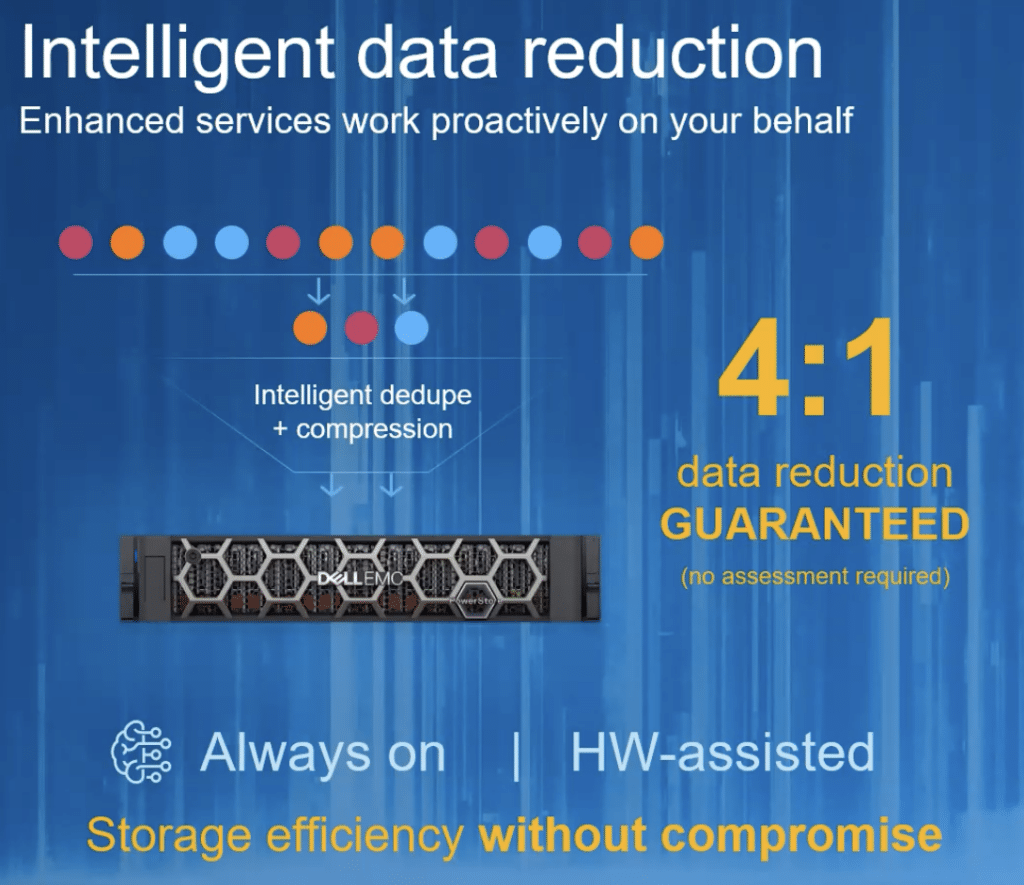
Intelligent data reduction: PowerStore simplifies storage management by optimizing capacity and performance while delivering a guaranteed 4:1 data reduction. The array’s Intelligent Data Reduction functionality is always running without impacting performance.
Greater resiliency: PowerStore’s Dynamic Resiliency Engine (DRE) helps customers maintain performance while safeguarding against dual drive failures. DRE provides up to 98% less management effort compared to traditional RAID configurations.
Smarter tiering: PowerStore uses storage-class memory (SCM) as persistent storage. It differentiates between SCM and standard NVMe drives within the system, speeding metadata access for up to 15% lower workload latency with an investment as low as a single Intel Optane SCM SSD. This is actually a major change, as prior, systems that used Intel Optane SSDs had to be all in on Optane. Now the system configuration gets much more flexible.

PowerStore’s automation capabilities are honored by Dell EMC CloudIQ, storage monitoring and analytics software that uses artificial and human intelligence to deliver real-time performance and capacity insights.
Introducing the Dell EMC PowerStore 500
The new PowerStore 500 delivers enterprise performance and storage services at an accessible price point. This entry model storage appliance is suitable for businesses of any size. It can be used in remote or branch locations, edge environments, or larger IT deployments. The PowerStore 500 also comes in with an affordable $28,000 starting price point.
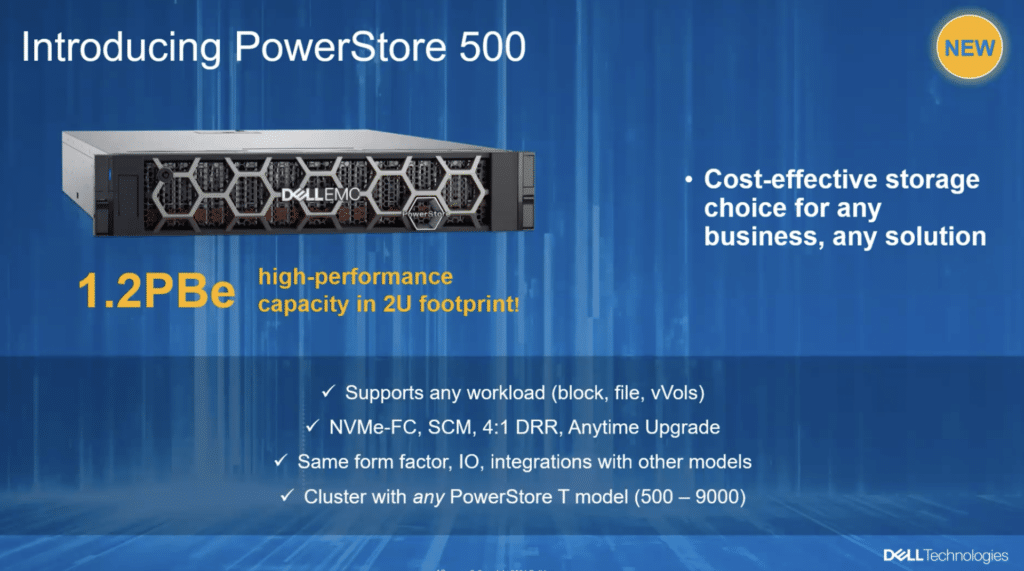
The array’s 2U form-factor stores up to an effective 1.2 petabytes. Dell states that this system can handle demanding enterprise workloads, supporting up to 2.4 million SQL transactions per minute and 1,500 VDI desktops per appliance. Customers can combine multiple PowerStore appliances, including the 500, for an affordable cluster easily managed with automation and data mobility capabilities.
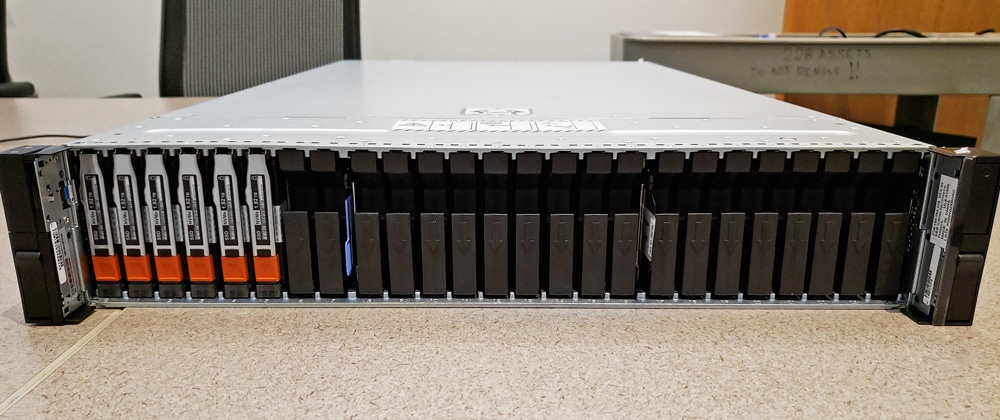
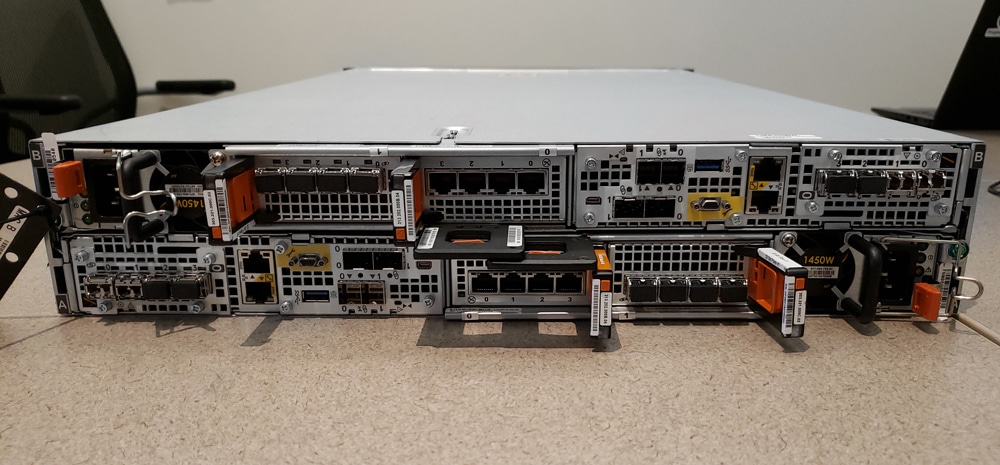
General availability for both PowerStore 500 and software updates is planned for June 10th. PowerStore 500 arrays will start at $28,000.
How it Works: Dell EMC PowerStore Cluster




 Amazon
Amazon